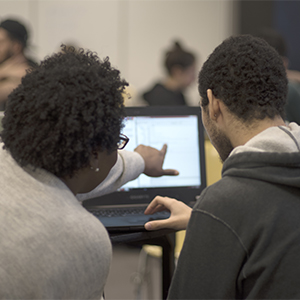
Project Vox is a feminist philosophy project dedicated to expanding the philosophical canon in the early modern period by highlighting the lives, works, and key contributions of women who were and are too often ignored. The project is a digital archive about several significant women during this time, including their works, a digital image gallery of texts and paintings to broaden typical approaches to philosophy, and syllabi examples for courses that intentionally incorporate women philosophers. While the project involves multiple focuses and sub-projects, the main aim of Project Vox is to cultivate feminist engagement with modern philosophy for students, faculty, and historians. The project is rewriting the traditional canon and historical understandings of idea development and transmission during Europe’s 1600s-1800s. The project began in 2014 with a group of faculty and staff at Duke University collaborating and eventually launching the official website in March 2015. Now several years later the project has received recognition in major outlets like The Atlantic, The Washington Post, and Times Higher Education Supplement. Additionally, Project Vox has sponsorship from the Andrew C. Mellon Foundation and the National Endowment for the Humanities (1).

Continue Reading Project Vox: A Digital Humanities-Philosophy Project Review on HASTAC’s site. HASTAC (Humanities, Arts, Science, and Technology Alliance and Collaboratory) is an interdisciplinary community of humanists, artists, social scientists, scientists, and technologists changing the way we teach and learn.



